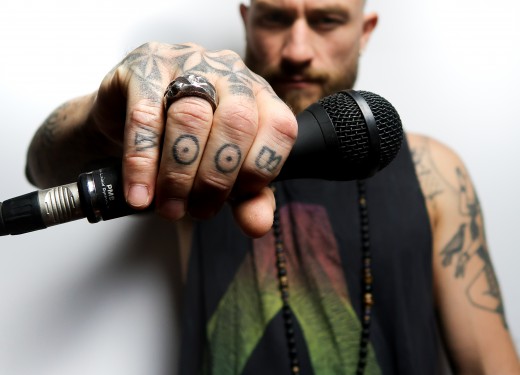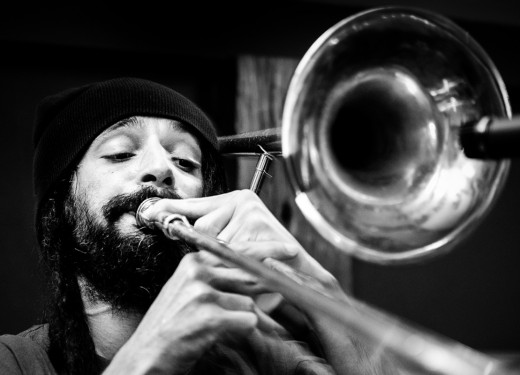
With a strong background in engineering and programming, Robert Henke started as a musician in the mid 90's. His first project is entitled Monolake which debuted as an ambient / techno / experimental duo in 1995. Fascinated by the way sound can be generated and manipulated by digital techniques he began to build his own software (in Max) and hardware (the Monodeck). Then, in 2001, with the help of his long-time friend and collaborator Gerhard Behles he founded Ableton, the company behind one of the most well-known and versatile music software, Live. In the last years Robert Henke focused on his own projects, based not only on surround sound design but also on powerful lasers and mapped/interactive projections. His installations, performances and concerts have been presented at Tate Modern London, the Centre Pompidou Paris, Palazzo delle Esposizioni in Rome, Le Lieu Unique in Nantes, PS-1 in New York and to many other places.Although he's a very busy man we managed to chat a bit about his own projects and sound philosophy.
I never really knew what I would become, but I was able to play with a DX-7 and a Mini Moog in the mid 1980s at school, the experience was amazing. In the 1990s all my sequencing came from an Atari, plus Max Version 2 on a Macintosh, and my hardware was a Roland Juno-6, a Yamaha SY-77, and the Prophet VS. That plus a Alesis Quadraverb and a Lexicon PCM 80 did the job.
There are so many amazing current and historic electronic instruments out there, it is hard to pick one. Instead here is a list of instruments I really like: Sequential Circuits Prophet VS, PPG Wave 2.3, New England Digital Synclavier II, and my modular synthesiser rig. There is no favourite MIDI controller, but I am still using a Faderbox from Doepfer, which has 16 faders and that's it.
It was my former Monolake partner, Gerhard Behles, who drove the founding of Ableton. What we wanted to develop was a new type of sequencer, optimized for live performance, based on our own experiences. My favourite feature is that it all works nicely together and of course the integration of Max4Live. Version 10 has a lot of cool stuff, especially a lot of very nicely done improvements in the arranger. I am very happy I did contribute to the Wavetable synthesizer.

There are no strict rules. Whatever works to achieve the desired result. Same with hardware versus software. If I am looking for a specific type of reverb, I might use convolution in Max4Live, or Ableton's Reverb, or the built-in reverb of my ASR-10 sampler, or the Lexicon.
Max 4 Live :- )
I personally have a lot of fun with my medium sized modular synthesis rig. It is very nicely integrated in my software setup, I can easily send MIDI data to it and create CV and gate signals, I can send and receive audio, and that means I can enjoy the freedom of playing around with it and then easily record or sync things. That combines having a lot of fun with the ability to create pieces that I can edit and tweak afterwards in software.
On my modular rig I start from scratch of course. When using my hardware synths, it depends. On the PPG I start often from scratch, on the Synclavier sometimes, on the other machines less or rarely.
Sometimes I play with my machines and just record sounds, which I later use in completely different contexts. That's especially true for percussions and long pads.
Creation takes time and costs money, there must be a way to compensate for it, or some things simply cannot happen. If no one pays developers, there is simply no Live. Copyright and payment are different things, and CC is another different thing. It all has to do with two questions: 1. How do you want other people treat your work and how do you want to be compensated for it? I can allow people to change my work, or i can insist that by doing so they kill its intention. Both can be true and should be accepted. I think it is also fair to not allow people to say copy my CDs, change the cover and sell them under their own name. That's exactly what copyright is for. The author must have the right to define the terms of the deal, everything else is completely inappropriate. Of course, that also can mean that, for instance, Ableton can decide to make the Link technology accessible for other developers.
No, but I often build little things when I need them. I am working on a project which requires to build a lot of hardware, and some of that will be eurorack modules.
A good club is a great space, a nice museum, theatre, gallery also offers good things.






